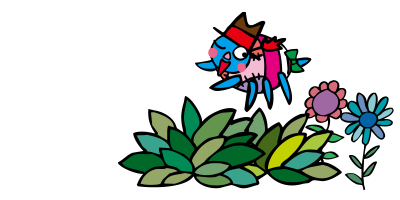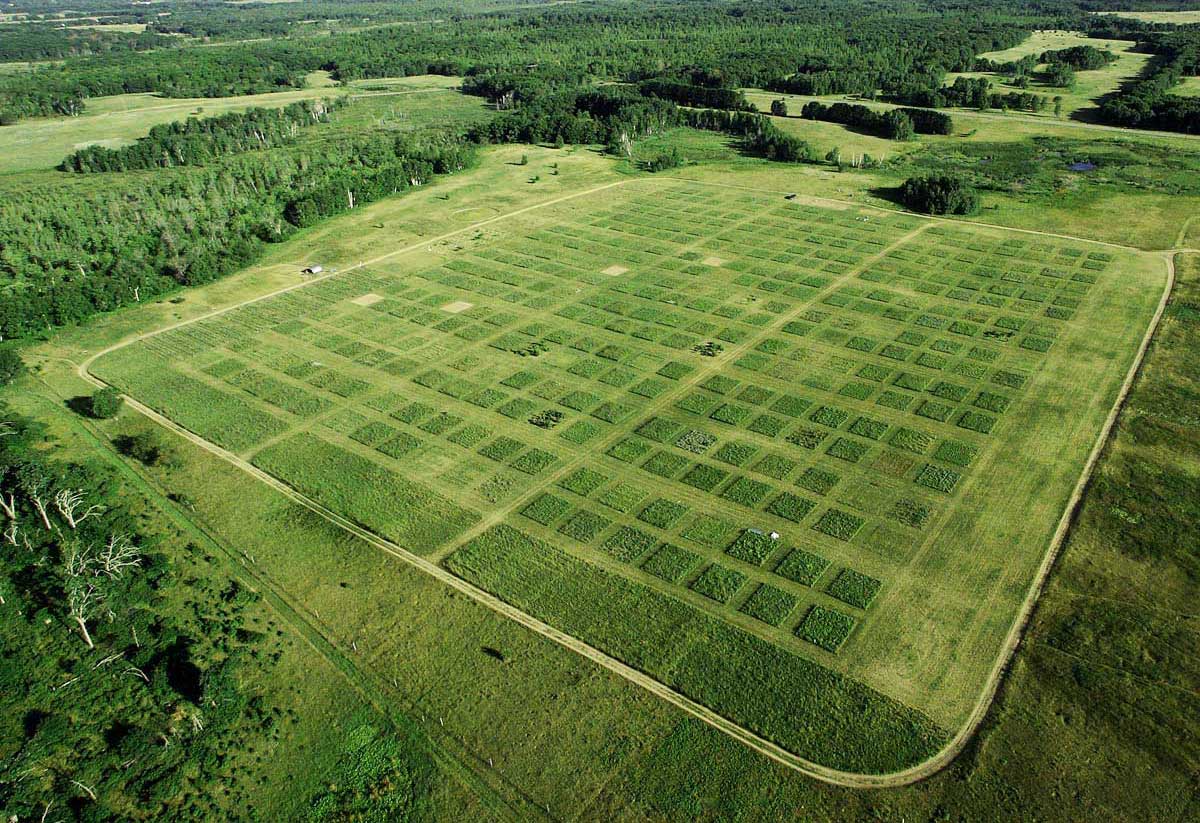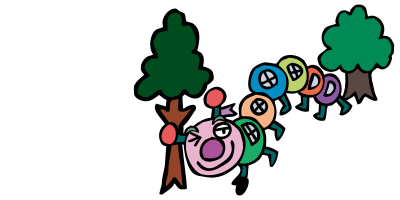Biodiversity Experiments
However, Tilman believed biodiversity was a major factor to improve land productivity. He decided to prove it by conducting experiments at an actual farm. It was the world's first large-scale experiment, in which the influence of biodiversity on productivity was investigated.
- (1) In one corner of a field station, many 9-meter-square plots were prepared.
- (2) Each plot was planted with either 1, 2, 4, 8 or 16 different prairie perennial species, all randomly chosen; their growth per unit area was observed for over 20 years.




